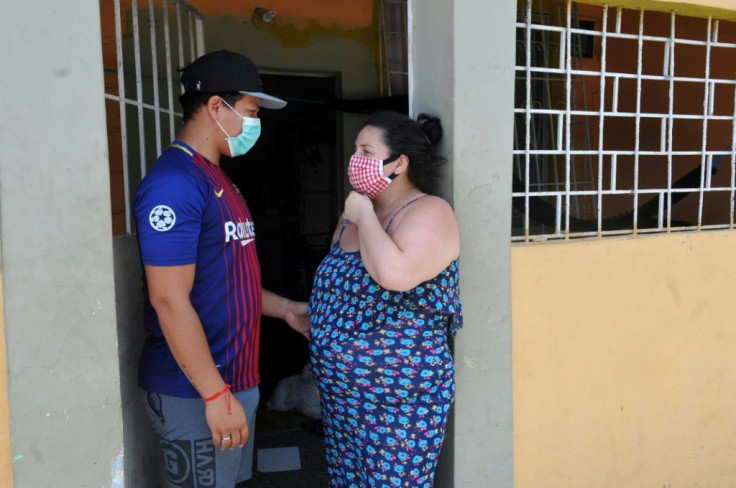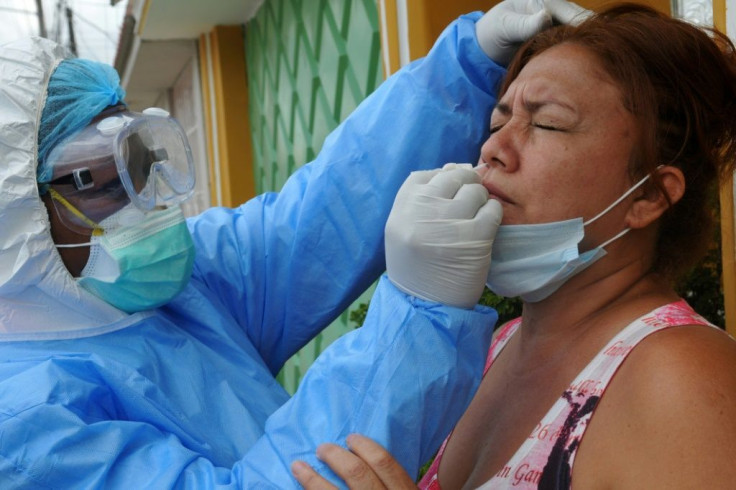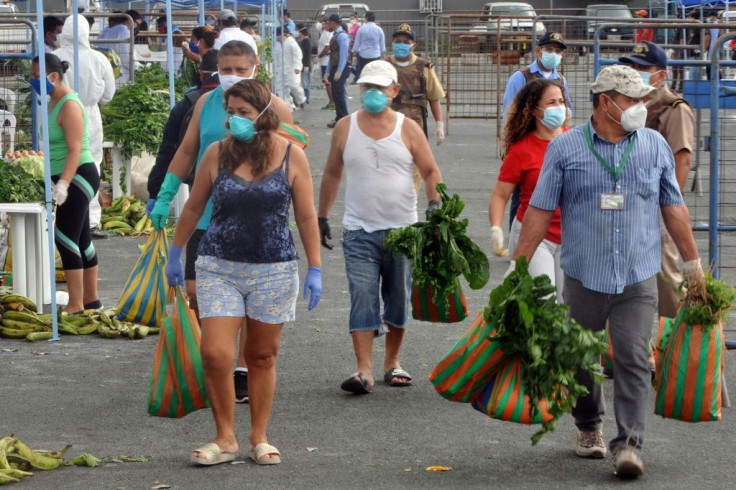Fear Of Giving Birth In Ecuador's Virus Epicenter

Maoli Plaza is eight months pregnant, but she does not know how her baby is or where it will be born.
Diagnosed with COVID-19, she is in isolation in Guayaquil, the sweltering city at the epicenter of Ecuador's outbreak, whose health system has collapsed under the weight of the virus.
Maternity wards in Guayaquil are continuing to attend to deliveries despite the chaos, but the deadly virus has spooked future mothers, and gynecologists believe many pregnant women are stuck at home without help.
Plaza, 29, only leaves her room in the modest, single storey home she shares with her husband Kevin and her mother-in-law in Sauces, a poor neighborhood of Guayaquil, to use the bathroom.
She said she walks "a little bit around my room to move my body. I have a chair next to my bed, that's my day to day."
"I don't know how the baby is," she said. "I just want someone to come and say 'it's over' so I can look for somewhere calmly and give birth."
Her last pre-natal check-up was on March 17, before Guayaquil's health system collapsed.
Now she has no idea where the baby will be born. Unable to afford a private clinic, she has few options.
The Alfredo Paulson maternity hospital has been attending to her throughout her pregnancy, but she's worried it will turn her away due to her infection.
It's happened to her once before, at a different establishment she went to prior to her COVID-19 diagnosis when she was suffering from virus symptoms.

Plaza went for tests at a public hospital after members of her family fell ill. She's the only one in her home to have contracted the virus.
Around 120 babies are born in Guayaquil every day.
It should be something to celebrate, but the hot, humid city of 2.7 million people has suffered almost half of Ecuador's near 10,500 virus cases, and is engulfed in mourning.

In the first two weeks of April, there were 6,700 deaths in Guayaquil, according to the government. In normal times, the city has on average around 2,000 deaths a month.
No-one knows exactly what extent the COVID-19 pandemic has played in that spike given that relatively few of the deaths are directly attributed to the disease.
The World Health Organization is still not sure whether or not pregnant women can transmit the coronavirus to their unborn babies.
Gynecologist Rossana Parodi, 55, believes many pregnant women are trapped in their homes without help.
"I had referrals from a doctor who works in the (health) ministry because they had patients turn up with a retained placenta or postpartum bleeding because no one was looking after them," Parodi told AFP.
Three local municipal hospitals have been equipped with maternity services to look after the poorest people and by Monday had seen 70 women.
Those that are admitted are kept for as little time as possible, and visits are banned.
More fortunate women have put their faith elsewhere.
Photographer Ericka Chacon, 34, is in the final days of her fourth pregnancy. She's chosen to give birth to her son Jorge Luis at her home in Daule, near Guayaquil.
"The clinics are overflowing and we thought it would be the least risky option for me and the child," she said, adding that she has full trust in her obstetrician.
Marianita Paladines, 60, offers home deliveries, something that is legal in Ecuador as long as it's carried out by a trained professional, although indigenous communities may turn to their traditional midwives.
Chacon has already set up a room for the birth and hopes her three other children aged between four and nine will be able to watch.
"Since this (outbreak) began, women who don't know me started ringing me up for home births because they don't feel safe in hospitals," Paladines told AFP.
A week ago she received a call for help. She donned her personal protection equipment and insisted that only one person be allowed in the birth room. It was a success.
"I like to be in contact with the woman, to dance with her. Not any more," she said.
© Copyright AFP {{Year}}. All rights reserved.





















